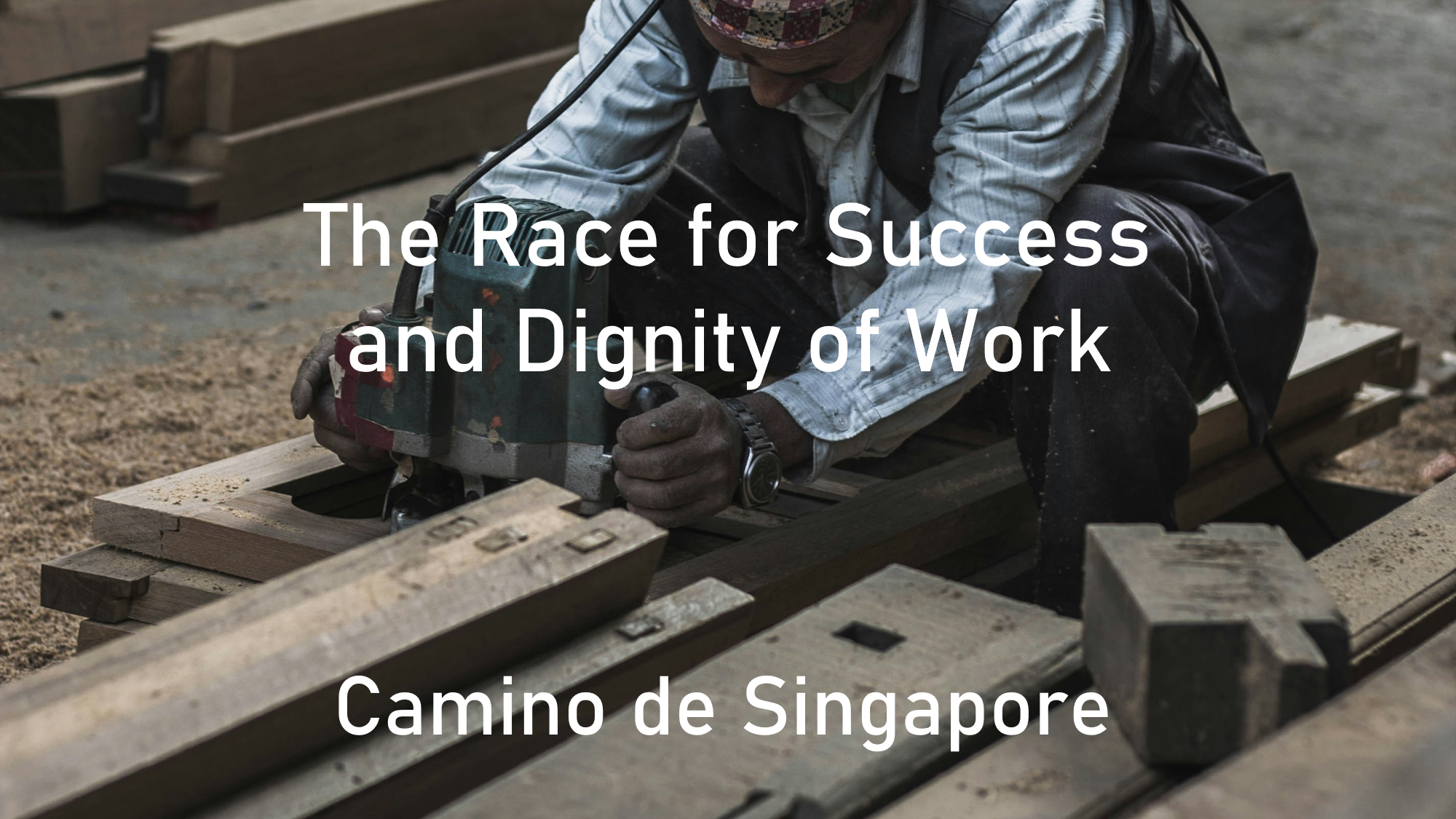No products in the cart.

Most Singaporeans can agree that “kiasu-ness”, or the competitive drive to win, is a feature of Singaporean society that is deeply influential on our choices and behaviours. This is why, in the recent Budget 2024 speech, Deputy Prime Minister Lawrence Wong expressed concern that “parents and children may get caught up in an education arms race” if there is a widespread perception that only a few career choices can lead to success. One way to expand the traditional idea of success, then, is to “accord greater value” to more technical jobs. This was the rationale given for the increased government support of graduates from the Institute of Technical Education (ITE). How can we look at this issue from the viewpoint of the Catholic Church’s social teaching tradition?
There are at least two main reasons why many parents might be racing with one another to put their children on a few traditionally popular career tracks such as medicine, law and banking.
The first is the deep-seated belief that one’s dignity or worth is defined by one’s success. Consider a narrative that many parents tell their children to motivate them: If you don’t study hard and do well, you will one day end up becoming a road sweeper. The subtext here is that a road sweeper is someone who has failed in life and is therefore worthless. (That said, this road sweeper’s fans might disagree.)
But the Catholic Church insists that every person is made in the image of God. God’s infinite glory resides in some form in every person. No one can possibly be worthless. In this Lenten season, this point could not be clearer. If the Son of God, who is infinitely more worthy than anyone, is willing to die a horrible death and then rise to redeem everyone, can anyone be an irredeemable failure?
The second reason for the “education arms race” is how success itself is often defined. Professions like lawyer, doctor and banker are popular because they tend to pay well and open up a path to elite social circles. Thus, success is tied to wealth and social status. Yet, a Forward Singapore report last year indicated that many Singaporeans want to expand the conventional definition of success.
In the encyclical Laborem exercens, Pope St John Paul II offered a different way to look at work. For him, true success should be about “self-realisation” because we are called to fulfil our potential as persons made in the image of God. Our work, whatever career tracks we are on, when done well and ethically, is a response to the divine invitation in the Book of Genesis to develop the world. More importantly, as we work and answer this divine call as only human persons can, we express and increase our dignity as images of God, delighting our Creator and sharing in His act of creation.
Now, if our worth is not defined by success and true success is about fulfilment of our potential, we can agree with the government’s effort to “accord greater value” to technical jobs. After all, the type of career is not very relevant. It is good as long as it helps people to express their dignity as human beings through work.
It also means the societal race to get into the few conventionally prestigious career tracks is contrary to God’s plan. If we truly wish for God’s kingdom to come to this earth, as we say during the Lord’s Prayer at every Mass, we must try to influence our communities to move away from this mindset.
But if we are to convince others that self-realisation is more important than “prestigious” career choices, we must begin by asking ourselves. In the first place, if we set aside cost of living concerns, are we truly convinced that every kind of work, including road sweeping, can express our dignity as images of God and please Him?
Related News
ITE graduates to get S$10,000 in CPF if they obtain a diploma (CNA, 16 February 2024)
Erwin Susanto is a staff member of Caritas Singapore. He enjoys arcane conversations on the Old Testament/Hebrew Bible in the context of the Ancient Near East. He enjoys thinking about all sorts of contemporary issues and often wonders if punditry is fun.
